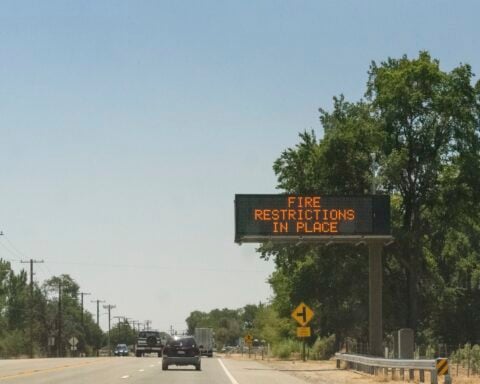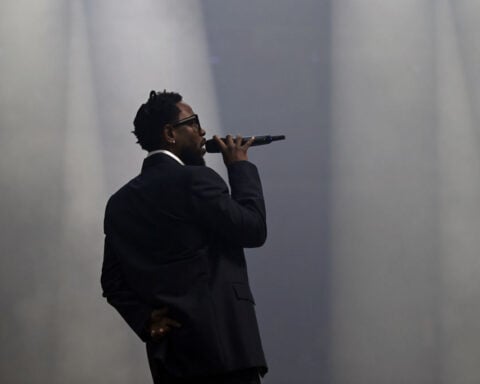The Family Research Council is a conservative advocacy group with a “biblical worldview.” While it has a church ministries department that works with churches from several evangelical Christian denominations that share its perspectives, it does not represent a single denomination. Although its activities are primarily focused on policy, advocacy, government lobbying and public communication, the Internal Revenue Service granted the council’s application to be treated as “an association of churches” in 2020.
Concerned that the IRS had erred in allowing the council and similar groups to be designated churches or associations of churches, Democratic members of the House of Representatives sent the Treasury secretary and the IRS commissioner letters in 2022 and 2024 expressing alarm. The House Democrats pointed to what appeared to be “abuse” of the tax code and asked the IRS to “determine whether existing guidance is sufficient to prevent abuse and what resources or Congressional actions are needed.”
As a professor of nonprofit law, I believe some groups that aren’t churches or associations of churches want to be designated that way to avoid the scrutiny being a charitable organization otherwise requires. At the same time, some other groups that should qualify as churches may have difficulty doing so because of the IRS’ outdated test for that status.
Together with my colleague Ellen P. Aprill, I recently published a paper outlining two main arguments in favor of revising the federal government’s definitions of churches as they pertain to tax law.
No 990s means less scrutiny
All charitable nonprofits, including churches, get the same basic benefits under federal tax law. This means they don’t have to pay taxes on their revenue and that donors can deduct the value of their gifts from their taxable income – as long as they itemize deductions on their tax return.
Unlike other tax-exempt charities, churches don’t have to file 990 forms. That means the public does not have access to churches’ staff pay, board membership and funding details, which are in this publicly available tax form that all other charities must complete every year. The availability of 990 forms enhances the transparency and accountability of the nonprofit sector.
And churches and associations of churches are unlikely to get audited by the IRS. Federal law requires that a senior IRS official “reasonably believes” the church or association has violated federal tax rules before beginning an investigation. This means that an official must have reason to believe the organization has violated federal tax law before obtaining any information from the organization.
This standard is higher than what’s needed before an audit can begin for all other tax-exempt organizations and indeed all taxpayers. For everyone else, the IRS is free to begin an examination based only on a suspicion of a violation or even based on random selection.
Also, unlike other tax-exempt charities, churches and church associations are automatically eligible for their tax-exempt status. They don’t have to apply for it.
Why churches get special treatment
Congress has passed laws granting churches and what it calls “integrated auxiliaries” and “conventions or associations of churches” special protections because the First Amendment to the U.S. Constitution protects religious freedom.
Churches include houses of worship ranging in size from a handful of parishioners to megachurches with 10,000 or more people attending weekly services. Houses of worship of all faiths, including synagogues, mosques and temples, count as churches, according to the IRS.
Integrated auxiliaries are church schools and other organizations affiliated with churches or conventions and primarily supported by internal church sources, as opposed to by the public or government.
Conventions or associations of churches are organizations that have houses of worship from either a single denomination or from multiple denominations as their members. Most denominational bodies, such as the executive committee of the Southern Baptist Convention and the U.S. Conference of Catholic Bishops, are likely conventions or associations of churches, although the IRS does not publish a list of such entities.
Not every religious nonprofit belongs in one of these categories.
For example, the University of Notre Dame, where I teach law students and conduct legal research, and World Vision, a global humanitarian group, are both religious organizations that do not fall into any of these categories. This makes sense, because Notre Dame and World Vision are primarily engaged in activities other than fostering a religious congregation or coordinating the activities of churches within a single denomination.
The IRS has long relied on a 14-factor test to distinguish churches from the other religious nonprofits. Examples of those factors include having ordained ministers, a formal doctrine, a distinct membership and a regular congregation attending religious services.
It’s not necessary for all the factors to apply to pass this test.
Yet for almost as long, courts have been uncomfortable with this test because it draws heavily on the traditional characteristics of Protestant Christian churches, as the U.S. Court of Federal Claims explained in a 2009 ruling. This system therefore may be a poor fit for houses of worship of other faiths, especially given the increasing diversity of faith communities.
These courts have instead adopted an “associational test.” It focuses on whether the organization’s congregants hold religious services on a regular basis and gather in person on other occasions.
With the growth of virtual and televised religious services, an update of this test is overdue.
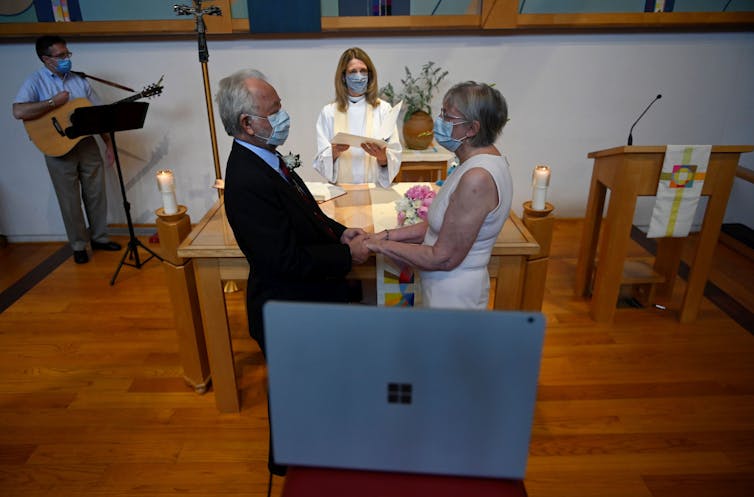
Proposed solutions
Aprill and I recommend that the IRS change its definition for churches to the associational one adopted by some courts in rulings as early as 1980. As the U.S. Court of Federal Claims explained in that 2009 ruling, this test focuses on whether a body of believers assembles regularly to worship. Given technological advances, the IRS should also make it clear that this test can be satisfied through remote participation in religious services using interactive, teleconferencing apps such as Zoom.
This definition would be also better suited for congregations of all faiths because some faiths do not prioritize many of the factors included in the IRS test, such as having a formal code of doctrine or requiring members to not be associated with other houses of worship or faiths. And it would better reflect how some Americans participate in religious services today.
We recommend that the IRS revisit its test for being a church and that Congress pass a law that would change the definition of church associations. The new law could limit associations of churches to organizations that represent a single denomination, as Congress likely initially intended.
This latter change would make it harder for religious organizations that are primarily involved in bringing churches from multiple faiths together to engage in advocacy or other activities to obtain this status and the lack of transparency and accountability that come with it. We believe Congress, not the IRS, should make this change because of the potential political tensions that narrowing the definition could create.
We don’t think the changes would impinge upon the special role that churches have in our society. Indeed, the revised test for qualifying as a church would better fit with both the increasing variety of faiths in our country and technological advancements.

Lloyd Hitoshi Mayer is affiliated with the University of Notre Dame, a tax-exempt religious nonprofit corporation. Lloyd Hitoshi Mayer is also affiliated with South Bend City Church, a tax-exempt religious nonprofit corporation that is classified as a church for federal tax purposes.
Source: The Conversation

 Chinese ship linked to Baltic Sea cable breach resumes voyage
Chinese ship linked to Baltic Sea cable breach resumes voyage
 China's Nio introduces Firefly brand to take on BMW's Mini
China's Nio introduces Firefly brand to take on BMW's Mini
 Iceland gets new government under Social Democrat Frostadottir
Iceland gets new government under Social Democrat Frostadottir
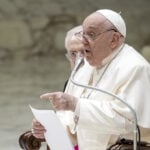 Pope Francis reprimands Vatican staff for gossiping in annual Christmas message
Pope Francis reprimands Vatican staff for gossiping in annual Christmas message
 Here's a look at the $100 billion in disaster relief in the government spending bill
Here's a look at the $100 billion in disaster relief in the government spending bill
 4 ways artificial intelligence revealed the unexpected in 2024
4 ways artificial intelligence revealed the unexpected in 2024
 Senate passes RFK Stadium land bill, giving the Washington Commanders a major off-the-field win
Senate passes RFK Stadium land bill, giving the Washington Commanders a major off-the-field win
 Tiger Woods says his son Charlie beat him in a round of golf for the first time, but only on a nine hole course
Tiger Woods says his son Charlie beat him in a round of golf for the first time, but only on a nine hole course
 Deck the halls (extra carefully): Common Christmas injuries, illustrated
Deck the halls (extra carefully): Common Christmas injuries, illustrated
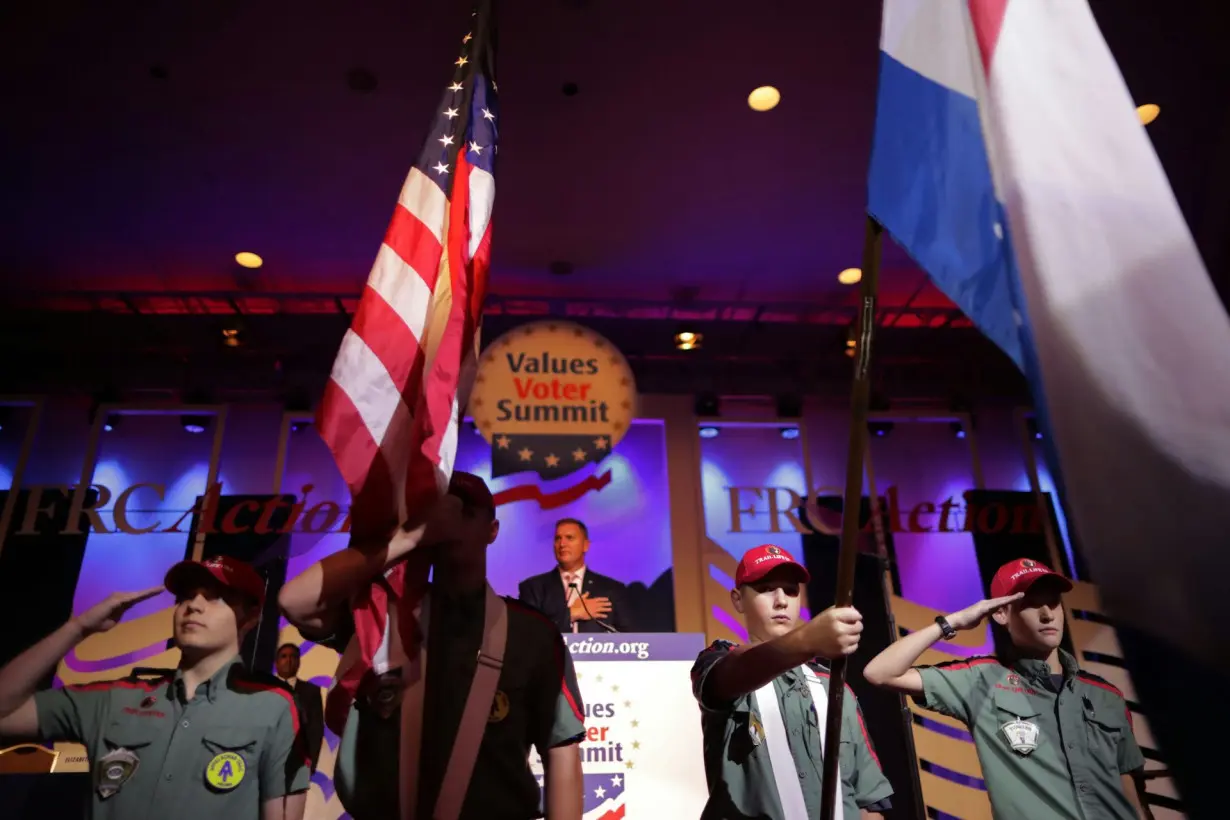 Uniformed members of Trail Life USA present the colors at the Family Research Council's 2018 Values Voter Summit.
Uniformed members of Trail Life USA present the colors at the Family Research Council's 2018 Values Voter Summit.

